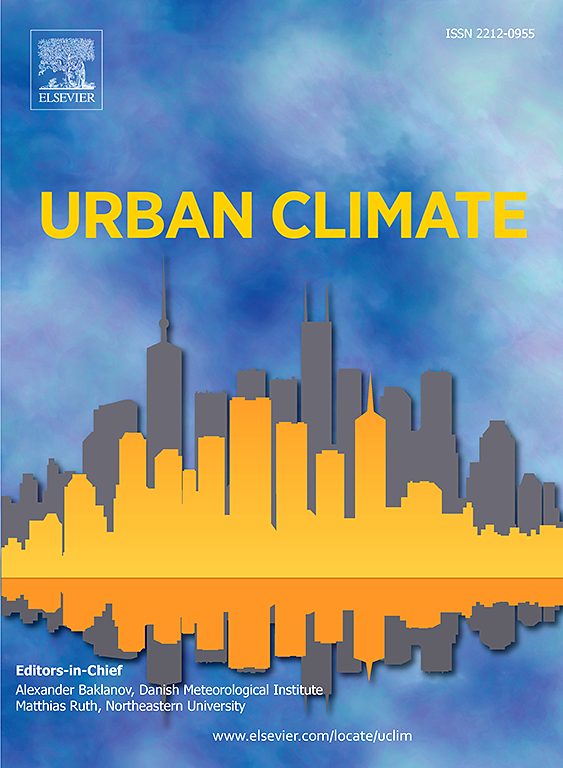The role of urban forests in mitigation of particulate air pollution: Evidence from ground observations in South Korea
IF 6
2区 工程技术
Q1 ENVIRONMENTAL SCIENCES
引用次数: 0
Abstract
The effects of forests in mitigating urban air pollution have not been fully evaluated due to limited observational data. This study assesses the role of urban forests in reducing particulate matter (PM) using data from the recently installed ground PM observation network across South Korean forests, known as the Asian Initiative for Clean Air Networks (AICAN). Results show that urban forests are more effective at reducing coarse PM (with PM decrease efficiencies of 4.5 % to 24.4 % for PM2.5–10) than fine PM (1.5 % to 11.4 % for PM0.25–1.0), particularly in summer due to increased biomass growth. The diminished removal effects observed for fine PM may result from elevated physiological activities within forests, which can enhance the accumulation of fine PM. Buffering forests, planted as belts between pollution sources and residential areas, effectively mitigate PM pollution only when sufficiently wide (at least 200 m) and aligned with the prevailing wind direction. Tower measurements reveal PM deposition onto the forest canopy, while fine PM increases through turbulent diffusion under the canopy. This study underscores the importance of urban planning and reforestation strategies in reducing PM levels and highlights the significant role of urban forests in mitigating air pollution.

城市森林在缓解空气微粒污染方面的作用:来自韩国地面观测的证据
由于观测数据有限,森林在缓解城市空气污染方面的作用尚未得到充分评价。本研究利用最近在韩国森林中安装的地面PM观测网络(称为亚洲清洁空气网络倡议(AICAN))的数据,评估了城市森林在减少颗粒物(PM)方面的作用。结果表明,城市森林对粗粒PM (PM2.5-10 PM的降低效率为4.5% - 24.4%)比细粒PM (PM0.25-1.0 PM的降低效率为1.5% - 11.4%)更有效,特别是在夏季,由于生物量的增加。对细颗粒物的去除效果减弱可能是由于森林内生理活动的增加,从而增加了细颗粒物的积累。在污染源和居民区之间种植缓冲林,只有在足够宽(至少200米)并与盛行风向一致的情况下,才能有效减轻PM污染。塔式测量显示PM沉积在森林冠层上,而细PM通过冠层下的湍流扩散而增加。本研究强调了城市规划和再造林战略在降低PM水平方面的重要性,并强调了城市森林在缓解空气污染方面的重要作用。
本文章由计算机程序翻译,如有差异,请以英文原文为准。
求助全文
约1分钟内获得全文
求助全文
来源期刊

Urban Climate
Social Sciences-Urban Studies
CiteScore
9.70
自引率
9.40%
发文量
286
期刊介绍:
Urban Climate serves the scientific and decision making communities with the publication of research on theory, science and applications relevant to understanding urban climatic conditions and change in relation to their geography and to demographic, socioeconomic, institutional, technological and environmental dynamics and global change. Targeted towards both disciplinary and interdisciplinary audiences, this journal publishes original research papers, comprehensive review articles, book reviews, and short communications on topics including, but not limited to, the following:
Urban meteorology and climate[...]
Urban environmental pollution[...]
Adaptation to global change[...]
Urban economic and social issues[...]
Research Approaches[...]
 求助内容:
求助内容: 应助结果提醒方式:
应助结果提醒方式:


